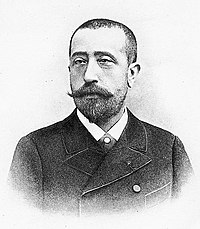
Photo from wikipedia
Background: Pantothenate kinase–associated neurodegeneration is characterized by severe, progressive dystonia. This study aims to describe the reported usage of cannabis products among children with pantothenate kinase–associated neurodegeneration. Methods: A cross-sectional,… Click to show full abstract
Background: Pantothenate kinase–associated neurodegeneration is characterized by severe, progressive dystonia. This study aims to describe the reported usage of cannabis products among children with pantothenate kinase–associated neurodegeneration. Methods: A cross-sectional, 37-item survey was distributed in April 2019 to the families of 44 children who participate in a clinical registry of individuals with pantothenate kinase–associated neurodegeneration. Results: We received 18 responses (40.9% response rate). Children were a mean of 11.0 (SD 4.3) years old. The 15 respondents with dystonia or spasticity were on a median of 2 tone medications (range 0-9). Seven children had ever used cannabis (38.9%). The most common source of information about cannabis was other parents. Children who had ever used cannabis were on more tone medications, were more likely to have used opiates, were less likely to be able to roll, and less likely to sit comfortably, than children who had never used cannabis. Four children reported moderate or significant improvement in dystonia with cannabis. Other areas reported to be moderate or significantly improved were pain (n = 3), sleep (n = 4), anxiety (n = 3), and behavior (n = 2). Adverse effects included sadness (n = 1), agitation/behavior change (n = 1), and tiredness (n = 1). Conclusion: Cannabis use was commonly reported among children with pantothenate kinase–associated neurodegeneration whose parents responded to a survey, particularly when many other dystonia treatments had been tried. Physicians should be aware that parents may treat their child with severe, painful dystonia with cannabis. Placebo-controlled studies of products containing cannabidiol and 9-tetrahydrocannabinol are needed for pediatric tone disorders.
Journal Title: Journal of Child Neurology
Year Published: 2019
Link to full text (if available)
Share on Social Media: Sign Up to like & get
recommendations!